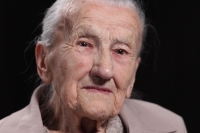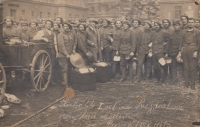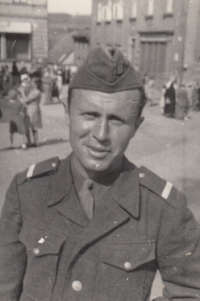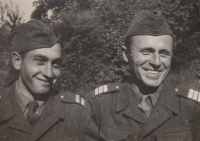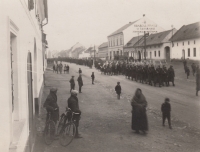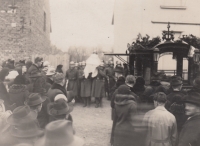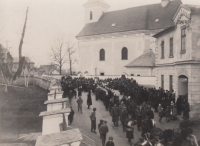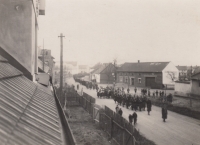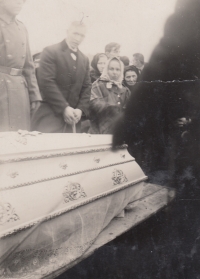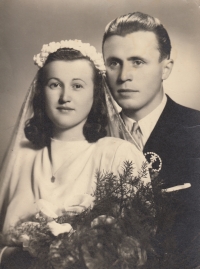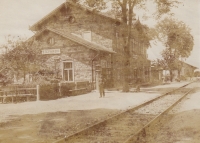My brother was imprisoned and my sister and I were forced to labour in the Reich

Download image
Anna Hejdová, née Polášková, was born on the 14th of February 1926 in Olomouc into the family of a former member of the Czechoslovak Legion and a train dispatcher Antonín Polášek and his wife Anna. Antonín Polášek went through the Russian front during World War I as a legionary, from where he returned under dramatic circumstances as late as 1920. When Anna was eight years old, Antonín died after a kidney operation. The family lived on a modest farm in Horka nad Moravou but their peaceful life was disrupted by the Second World War. In 1944, Anna’s brother Miroslav was arrested by the Gestapo and imprisoned for allegedly lending permits to resistance fighters so they could get to the Sudetenland. Anna and her sister Emilie had to join the forced labour in the Reich the same year. Emilie went to Breslau, while Anna was sent to Wiener Neustadt, Austria, to work in a factory where German Messerschmitt Bf 109 fighter planes were manufactured. After the drastic bombing, the forced labourers were moved back to the Protectorate and Anna continued to work in the Nazi-occupied Sigmund factory in Lutín, where she among other things also assembled the wings and fuselages of German aircraft. The forced labourers worked there alongside internees whose relatives had fled the Protectorate, and there Anna Heydová met the father of Josef Albrecht, a colonel in memoriam, who was killed in England as an RAF pilot in 1940. After the war, Anna began to work in agriculture. In 1949, she married Jaromír Hejda, with whom she raised two children, Hana and Jaromír. In 2022, at the time of the recording, Anna Hejdová lived in the Home for the Elderly in Kostelec na Hané.
